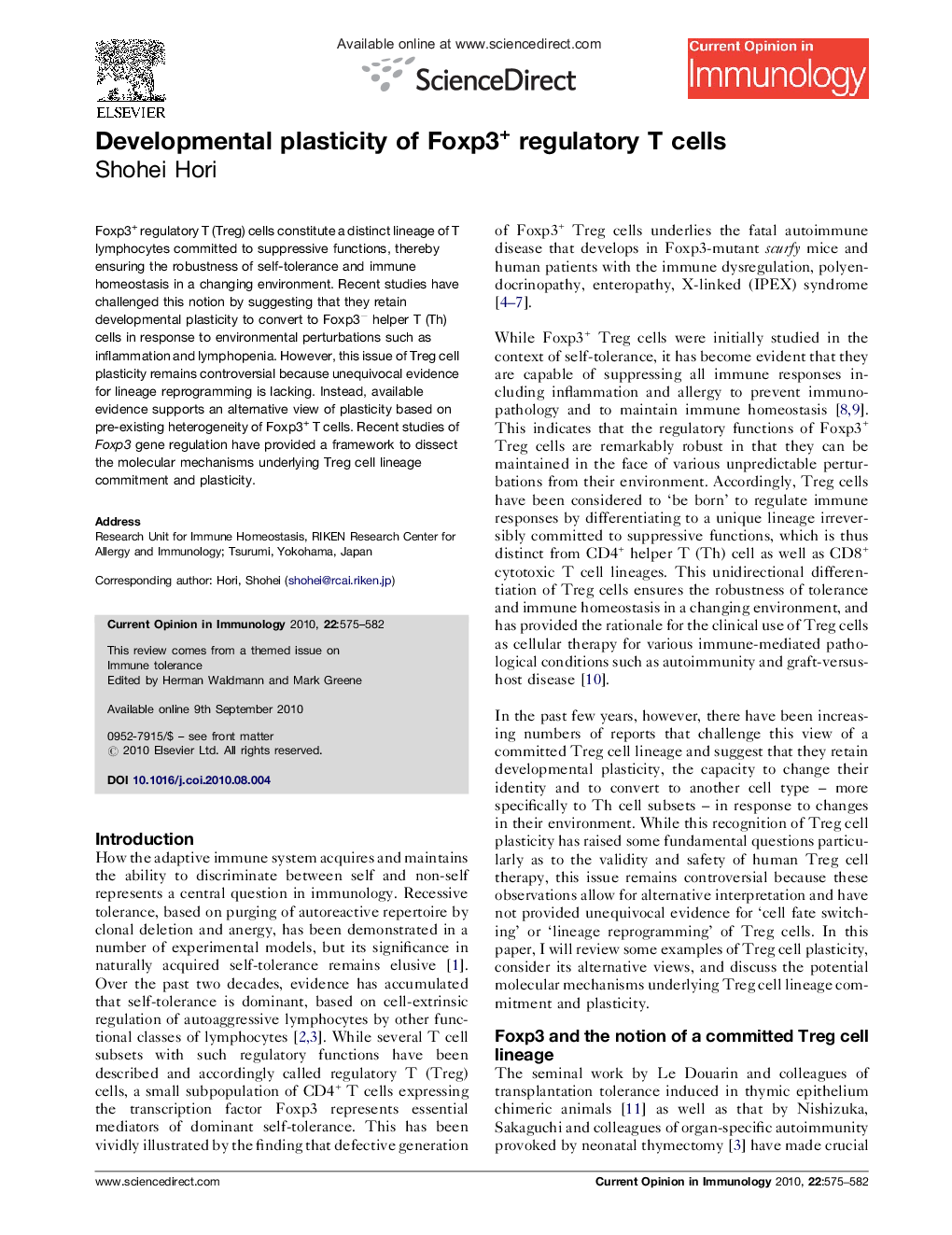| Article ID | Journal | Published Year | Pages | File Type |
|---|---|---|---|---|
| 6115301 | Current Opinion in Immunology | 2010 | 8 Pages |
Abstract
Foxp3+ regulatory T (Treg) cells constitute a distinct lineage of T lymphocytes committed to suppressive functions, thereby ensuring the robustness of self-tolerance and immune homeostasis in a changing environment. Recent studies have challenged this notion by suggesting that they retain developmental plasticity to convert to Foxp3â helper T (Th) cells in response to environmental perturbations such as inflammation and lymphopenia. However, this issue of Treg cell plasticity remains controversial because unequivocal evidence for lineage reprogramming is lacking. Instead, available evidence supports an alternative view of plasticity based on pre-existing heterogeneity of Foxp3+ T cells. Recent studies of Foxp3 gene regulation have provided a framework to dissect the molecular mechanisms underlying Treg cell lineage commitment and plasticity.
Related Topics
Life Sciences
Immunology and Microbiology
Immunology
Authors
Shohei Hori,
